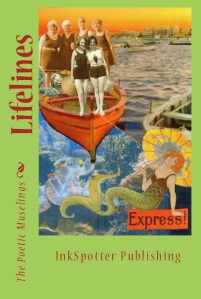A Trip Down Memory Lane
It’s almost supper time and I’m hungry, which got me thinking about my father and his ability to pick restaurants.
Out to Lunch
One of the things about my father that always impressed me was his ability to pick out good restaurants on the fly. He would look around, sniff a few times, take a look at the menu and make a decision. I don’t ever remember having a bad meal when we ate together.
We lived in Manhattan and though we ate out quite a lot on Sunday nights it was always at the same few restaurants. One of them was Tony’s Italian Kitchen on West 79th street. It was owned by the chef and the maitre d’, I learned later, and according to my father this was one of the secrets of its success. In any case, they had one of the best antipastos I have ever eaten in any Italian restaurant. It had marinated peppers, mushrooms, olives, Italian salami and provolone and much more. I was floored when, after coming to Boston for the first time, I ordered antipasto and was served what was basically a large salad.
It was on a summer trip through England and France, however, when this ability came to the fore. We never had a bad meal even in London, which at the time had a reputation for dull food.
But it was in France that he impressed us most. We were in Paris and were walking around Montmartre when supper time rolled around. As we strolled down the hill, my father pointed to a restaurant close to the top of the hill, La Mere Catherine.
“Let’s try that one,” he suggested. I never did find out why he picked it.
I had coq au vin for supper. It is now many, many years later and I still remember the meal and the savory flavor of the chicken in red wine. I later looked the restaurant up in the famous Guide Michelin and discovered that it had an impressive one star. Trust me, one star is an amazing achievement. The thing is, though, that my father picked it out without consulting the guide book
Later that same trip I stumbled across what I remember as one of my first experiences of culture shock. We were in a restaurant in the French countryside ordering lunch, in French, which we all spoke. I was ordering a croque monsieur, a grilled ham and cheese sandwich. The conversation, which for convenience I’ll render mostly in English, went something like this:
“And what kind of cheese would you like?” the waitress asked.
“Fromage Suisse” (Swiss cheese) I replied.
“And what kind of Swiss cheese?” she responded.
I was floored. I never knew there was more than one. Ever on the ball, however, I came back with “what kinds do you have?” They had emmental and gruyere. I picked gruyere, mostly because it sounded familiar.
In case you ever face this dilemma, however, I’ll add that our imported Swiss cheese is in fact emmental. Gruyere is more like domestic Swiss.
Though I never figured out all of how my father did it, I did learn at least one of his secrets one day when I met him for dinner. He had spent the day at the courthouse in lower Manhattan, so we decided to go to Chinatown for dinner.
We were standing in line at the place he picked out when I asked rather plaintively, “Why not that place over there? There’s no line.”
“Exactly,” he replied.
Dinner was delicious.











